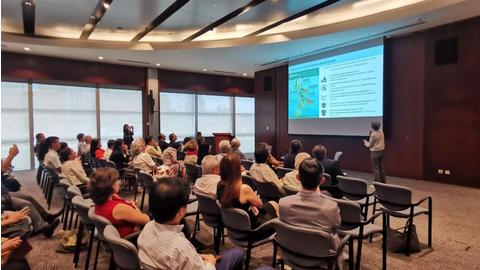Companies news
Denis Driving Sustainability Forward with Product Life Cycle Assessments

Denis Asia Pacific is deeply committed to understanding the environmental footprint associated with its products. Denis Asia Pacific initiated the practice of conducting Life Cycle Assessments (LCA) on its core product range several years ago. This meticulous process serves a dual purpose: enhancing Denis Asia Pacific's comprehension of greenhouse gas (GHG) emissions at the product level and providing a holistic view of the broader environmental impact beyond climate change alone. LCAs encompass a wider array of environmental impacts than climate change, including impacts on biodiversity, water availability, resource utilization, eutrophication, acidification, ozone depletion, land use, and ecotoxicity, among others.
Examining all these impacts at each stage of Denis Asia Pacific's products, from the cultivation of ingredients to the usage and disposal of packaging by the end consumer (referred to as «Cradle to Grave» in LCA terminology), yields invaluable insights directing Denis Asia Pacific's focused actions.
To date, Denis Asia Pacific has completed this comprehensive analysis for three of its flagship products:
- Sardines and Mackerel in Tomato Sauce, in cans.
- Baked Beans in Tomato Sauce, in cans.
- Coconut Milk and Coconut Cream, in cans and TetraPak.
The findings from these studies have provided intriguing information. For instance, in Denis Asia Pacific's sardine and mackerel products, the packaging in cans constitutes the majority of the climate change impact.
In the case of coconut products, the farming stage of the coconut itself emerges as the primary source of greenhouse gas emissions.
Conversely, for baked beans, the manufacturing stage exerts the most significant impact on climate change, attributed to Denis Asia Pacific's use of fossil fuels in production.
In an effort to simplify and benchmark the complex results of its LCAs, Denis Asia Pacific is translating all environmental impacts into a Single Score, adhering to the European Commission’s definition and guidelines. The outcome is unequivocal: Denis Asia Pacific's products rank among the food items with the lowest environmental impact.
To underscore this commitment, Denis Asia Pacific participated in the French Green-Score initiative, which aims to showcase the environmental impact of food products on their packaging. On this scale, the majority of Denis Asia Pacific's products secure A or B ratings (the best scores), with only a select few receiving a C rating (the lowest rating being E).
Denis Asia Pacific's dedication to this ongoing initiative continues, as the company remains committed to assessing more of its products along the way. Denis Asia Pacific firmly believes that reducing its impact begins with a thorough understanding that will then contribute to a more sustainable food supply future.
SOURCE: Denis Asia Pacific


